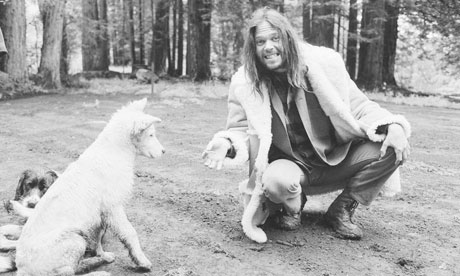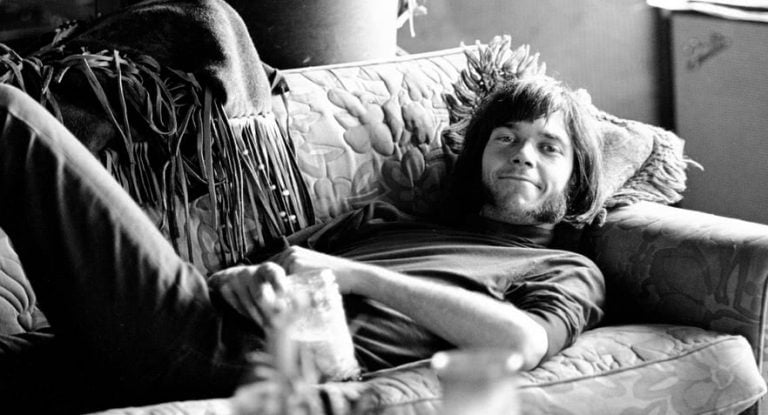Back in 1969, a man named Charles Manson, like a great deal of the youth at the time, felt an affinity with the music of popular Liverpool beat group The Beatles. Whereas a lot of people related to the messages of peace; the winking drug references; the constant, quick paced innovation; and the musical palette–the jaw-dropping depth and variety of which remained unchallenged–Manson simply heard coded messages, warning him specifically of an impending apocalyptic race war. Art is subjective, after all.
And while The Beatles White Album has long been cited as the record that triggered the Manson Family killings (he even referred to the forthcoming war as ‘Helter Skelter’ – no doubt causing the shredding of thousands of similarly branded Beatles tees) there were numerous other popular ‘60s musicians who were way more involved in Manson’s life in the period leading up to the killings.
THIS IS PART TWO OF A SERIES. (PART ONE: BEACH BOYS | PART THREE: MAMAS AND THE PAPAS)
Neil Young and Manson were both musicians in the fertile Topanga Canyon/Laurel Canyon music scene in 1968.
Young blew in from Canada in 1966, and firmly embedded himself into the music scene, hanging with Crosby, Still, Nash and… Manson. In reality, Young was a regular visitor to Dennis Wilson’s house around the time Manson started making himself very much at home, and unlike numerous others in the scene, who derided Charlie as a talentless hack, Young seemed taken by him, declaring to NME journalist Nick Kent that Manson was “great, he was unreal. I mean, if he had a band like Dylan had on Subterranean Homesick Blues…” obviously leaving that quote hanging because nobody would suggest that a sluggish rhythm section sparked the Helter Skelter murders.

Don’t follow leaders…
While other musicians who had a passing association with Manson during the period have not-surprisingly distanced themselves from the whole murky affair, Young has never really had any qualms with his relationship with the cult leader, singing his praises openly in his biography Shakey, referring to Manson as “stone-brilliant”, “a frustrated artist”, and “real smart” throughout the book’s pages.
Love Music?
Get your daily dose of metal, rock, indie, pop, and everything else in between.
Young, in a monumental understatement, retrospectively described Manson as being “a little too intense” in a documentary, but nevertheless openly fuelled his dreams of pop stardom, even going so far as to recommend Manson to Mo Ostin, president of Warner Brothers. Young, for his part, was genuinely impressed with Charlie’s music, telling another executive at his label, Reprise: “This guy, you know, he’s good. He’s just a little out of control.”
Manson seems to recall his friendship with Young favourably, stating from his Vacaville prison cell in 1995 that all the other Laurel Canyon musicians wrote him off, and “didn’t give a shit” – except for Neil Young.
“Charlie remembers me too, huh?” Young remarked when told of Manson’s fondness. “Everybody else ripped him off. I gave him a motorcycle. I turned out to be a good guy.”
In case you skipped over this fact: Neil Young gave Charles Manson a motorcycle. And then seemed genuinely surprised that Manson even remembered him at all, despite this generous gift in the face of almost universal disdain, and the fact that Young has gone on to become one of the most successful artists of the past fifty years.
Young later wrote the track Revolution Blues about Manson, which Dave Crosby was too scared to perform, lest the message be potent enough to inspire a series of copycat killings. Maybe if he’d put it on Harvest…
https://www.youtube.com/watch?v=cV-RwtzfST8


































